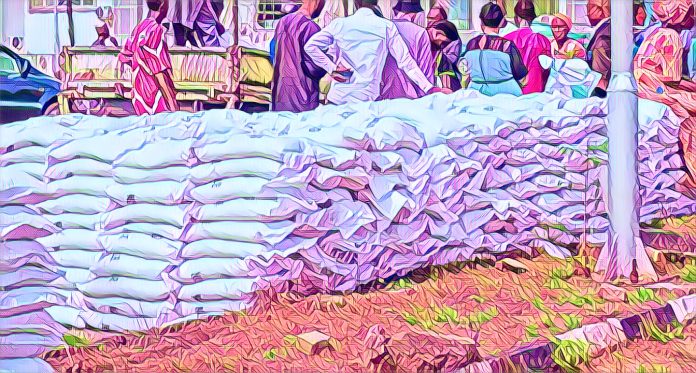Kwara State, one of the poorest states in Nigeria, has taken a bold step to cushion the impact of fuel subsidy removal on its workers and citizens. The state government announced on Wednesday that it is committing an additional N1.3 billion every month to the payment of palliatives to the workers in the state.
The state commissioner for communications, Bola Olukoju, said the administration, despite being among the third-lowest recipients of federal allocations, has maintained prompt payment of salaries and the general welfare of workers.
The statement was in response to a press briefing by labor unions, who demanded the implementation of outstanding allowances and emoluments and gave the government a 14-day ultimatum to respond.
According to Olukoju, the state government has also approved a slew of multibillion naira palliatives to neutralize the effects of the recent removal of fuel subsidies, cutting across different sectors and demography of the state.
Some of the palliatives include cash support of N10,000 for every public sector worker in the state, which will begin this month (July) and last until a new minimum wage is introduced; a staggered work schedule to reduce transportation expenses for workers; new hazard and skipping allowances, and 100% CONMESS for consultants and medical doctors under the government’s payroll; a new regime of allowances for nurses working for the state government; immediate cash-backing of 2019 and 2020 promotion for Teaching Service Commission workers; and extension of free bus rides for students of tertiary institutions in the state.
The state government also said it has received N2 billion out of the N4 billion relief funds that the Federal Government released for the purchase of rice to be distributed en masse to vulnerable members of the public in the state. The distribution of the palliatives will be overseen by a committee headed by the state police commissioner, Ebun Oluwarotimi Adelesi, who will be supported by the Emir of Shonga, Dr. Haliru Yahya, state chairman of Jama’átu Nasrul Islam and Christian Association Chairman (CAN) chairman (or their representatives), and representatives of civil society organizations, youth, disability community, and journalists.
The state government also said it will consider poultry and fish farmers in maize palliative and interface with marketers to curb extortions.
Kwara State is not the only state that has introduced palliatives to mitigate the hardship caused by the fuel subsidy removal. Other states such as Lagos, Oyo, Ogun, Ekiti, and Osun have also announced various measures to support their workers and citizens.
However, Kwara State stands out for its comprehensive and multisectoral approach, which covers not only the public sector workers, but also the health sector, the education sector, the agricultural sector, and the most vulnerable groups in the state.
The state government has also demonstrated its commitment to transparency and accountability by involving various stakeholders and security agencies in the distribution of the palliatives.
The fuel subsidy removal, which took effect on July 1, 2023, has sparked protests and criticisms from labor unions, civil society groups, and opposition parties, who accused the Federal Government of insensitivity and lack of consultation.
The Federal Government has defended its decision, saying that the subsidy regime was unsustainable, inefficient, and prone to corruption. It also said that the removal of the subsidy will free up funds for infrastructure development, social welfare programs, and economic diversification.
The Federal Government has also promised to provide palliatives to cushion the impact of the subsidy removal, such as mass transit buses, tax relief, and cash transfers to the poor.
However, many Nigerians are skeptical about the government’s promises, citing previous experiences of failed palliatives and poor implementation.
As the debate over the fuel subsidy removal continues, Kwara State has shown that it is possible to provide effective and inclusive palliatives to its people, despite its limited resources and low revenue base.
The state’s initiative could serve as a model for other states and the Federal Government to emulate, as they seek to address the challenges and opportunities of subsidy removal.
By providing palliatives that are timely, targeted, and transparent, Kwara State has demonstrated its responsiveness and responsibility to its workers and citizens, and its vision for a sustainable, clean-energy future.
Source: Business Day



